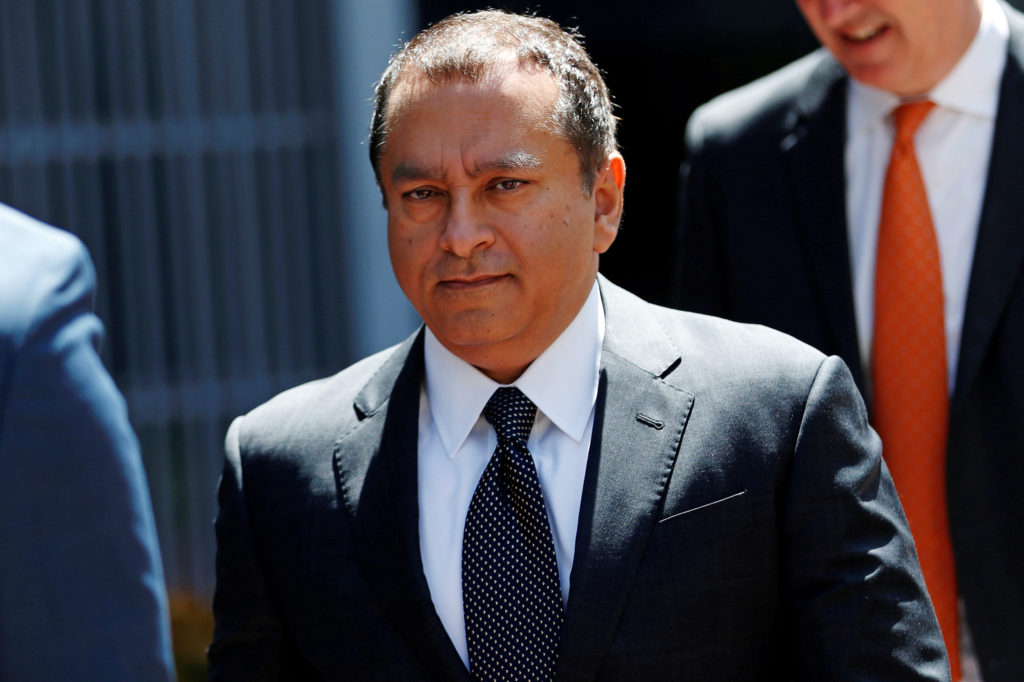|
Getting your Trinity Audio player ready...
|
Former Theranos executive Ramesh “Sunny” Balwani has been ordered to start serving his nearly 13-year prison sentence on the 20th of April,2023. This occurred after an appeals court rejected his bid to remain free while he contests his conviction. Balwani was found guilty on 12 counts of fraud and conspiracy for carrying out a blood-testing hoax with his former boss and lover, Elizabeth Holmes.
Theranos was once a Silicon Valley unicorn and a darling of the startup world. It promised to revolutionize the medical industry with a device that could conduct multiple blood tests from a single finger prick. But its technology was flawed and it was never able to deliver on its promises.
U.S. District Judge Edward Davila ordered Balwani to start serving his sentence in a federal prison in Southern California after the Ninth Circuit Court of Appeals issued a decision refusing Balwani’s request. One of Balwani’s lawyers had filed a motion late Thursday seeking nearly two weeks to give him time to make travel arrangements and other preparations for his trip to the prison.
Balwani will be heading to prison a week before Holmes, Theranos’ founder and CEO, is scheduled to begin her more than 11-year prison sentence after being convicted on four counts of fraud and conspiracy last year. Holmes appeared before Davila last month along with her lawyers in an effort to persuade the judge to allow her to remain free while she pursues her own appeal. Davila hasn’t ruled on Holmes’ request yet.
Although they had separate trials, Holmes and Balwani were accused of essentially the same crimes centered on a ruse touting Theranos’ blood-testing system as a revolutionary breakthrough in healthcare.
The claims helped the company become a Silicon Valley sensation that raised nearly $1 billion from investors. But its technology never came close to working like Holmes and Balwani boasted, resulting in Theranos’ scandalous collapse and a criminal case that shined a bright light on Silicon Valley greed and hubris.
Balwani will serve his sentence in the Terminal Island prison, located about 30 miles (50 kilometers) from downtown Los Angeles. The prison has incarcerated several other prominent figures, including gangster Al Capone in the 1930s, apocalyptic cult leader Charles Manson for auto theft in the 1950s, and LSD evangelist Timothy Leary in the 1970s.
Instead, the company engaged in fraudulent activities and falsified test results, which led to its downfall. The case drew national attention and raised questions about the role of ethics and accountability in the tech industry.
Holmes and Balwani both pleaded not guilty to charges of wire fraud and conspiracy to commit wire fraud. Holmes was convicted on four counts, while Balwani was convicted on all 12 counts.
During the trial, the prosecution argued that Holmes and Balwani misled investors, doctors, and patients about the capabilities of the blood-testing technology. They also accused them of misrepresenting financial information to investors.
The defense argued that Holmes and Balwani were simply trying to develop new technology and that they did not intend to defraud anyone. Despite their defense, both Holmes and Balwani were found guilty and were sentenced to prison terms. The case has been seen as a cautionary tale for the tech industry and a reminder of the importance of ethics and transparency in business.



